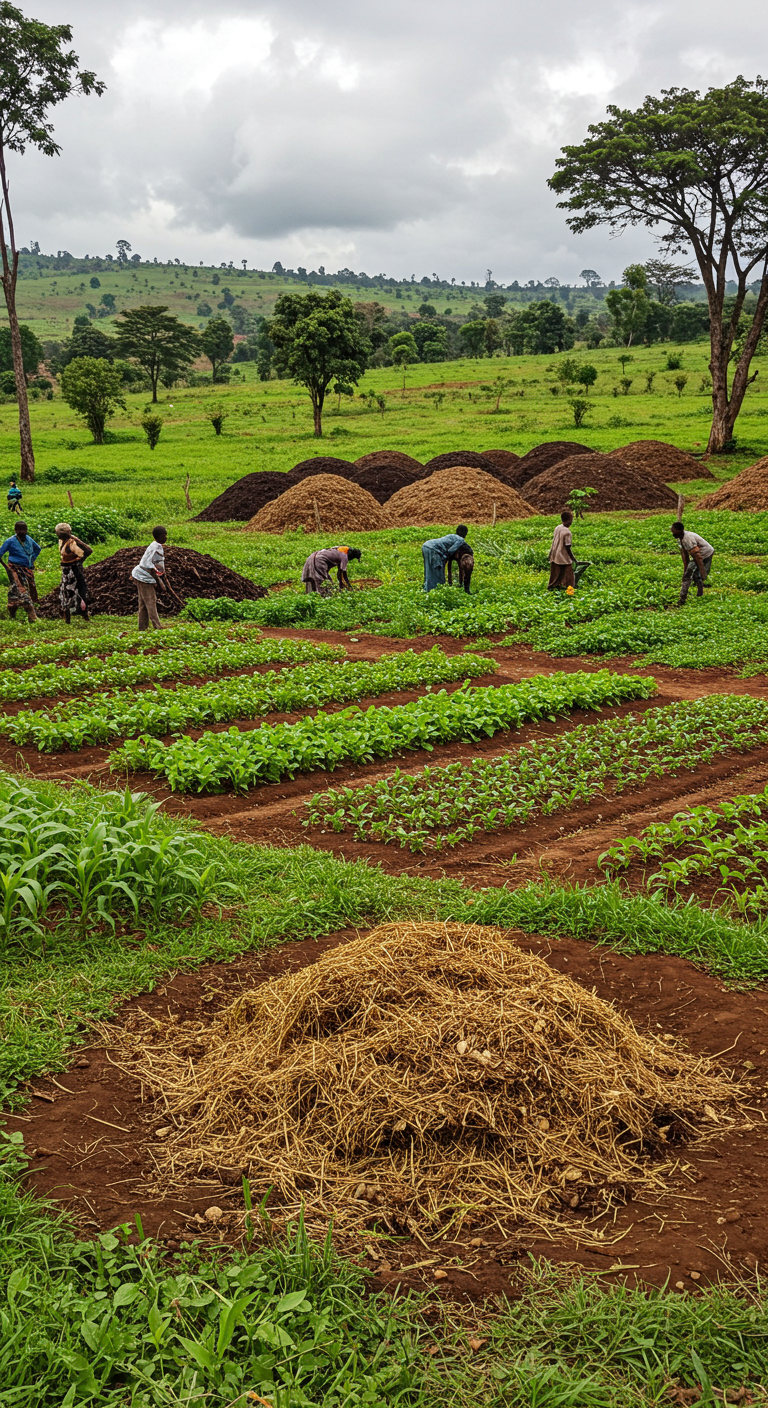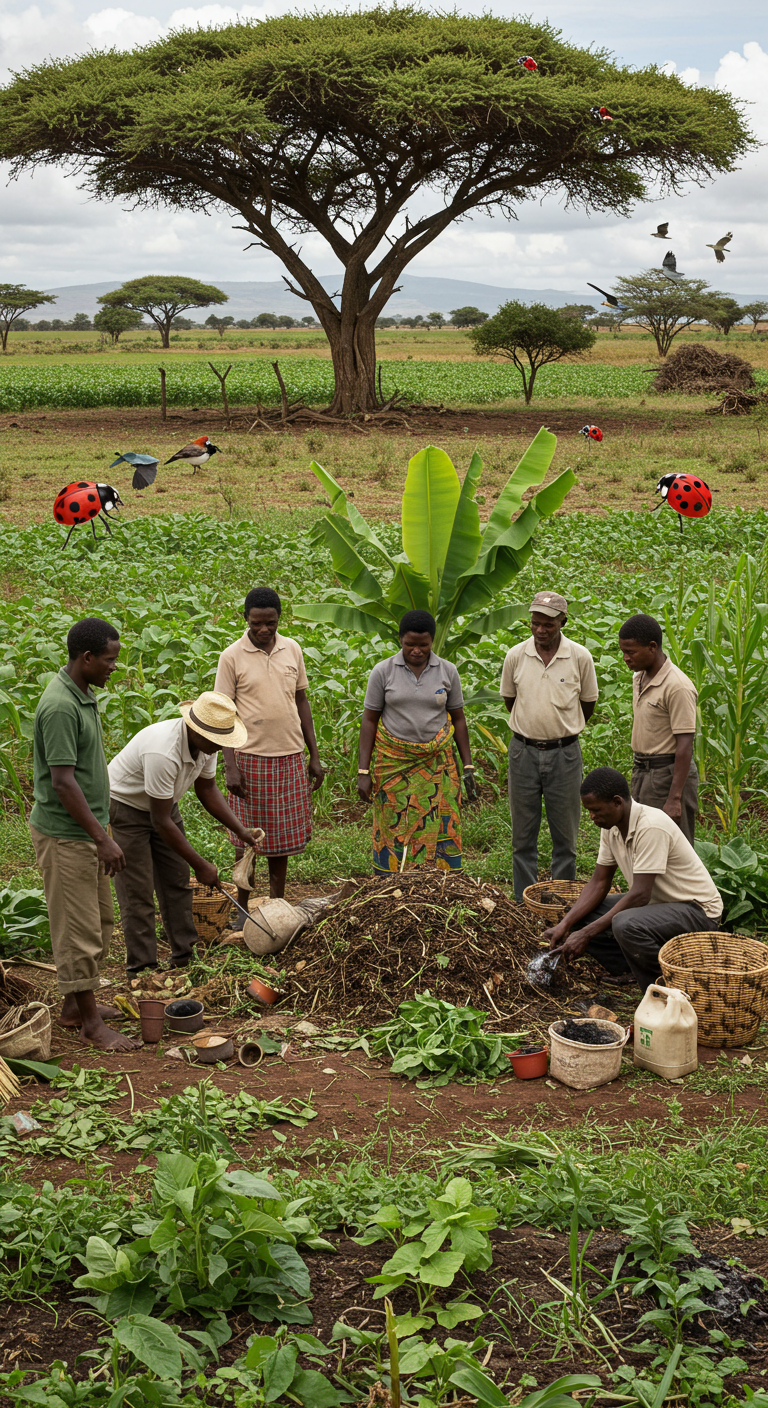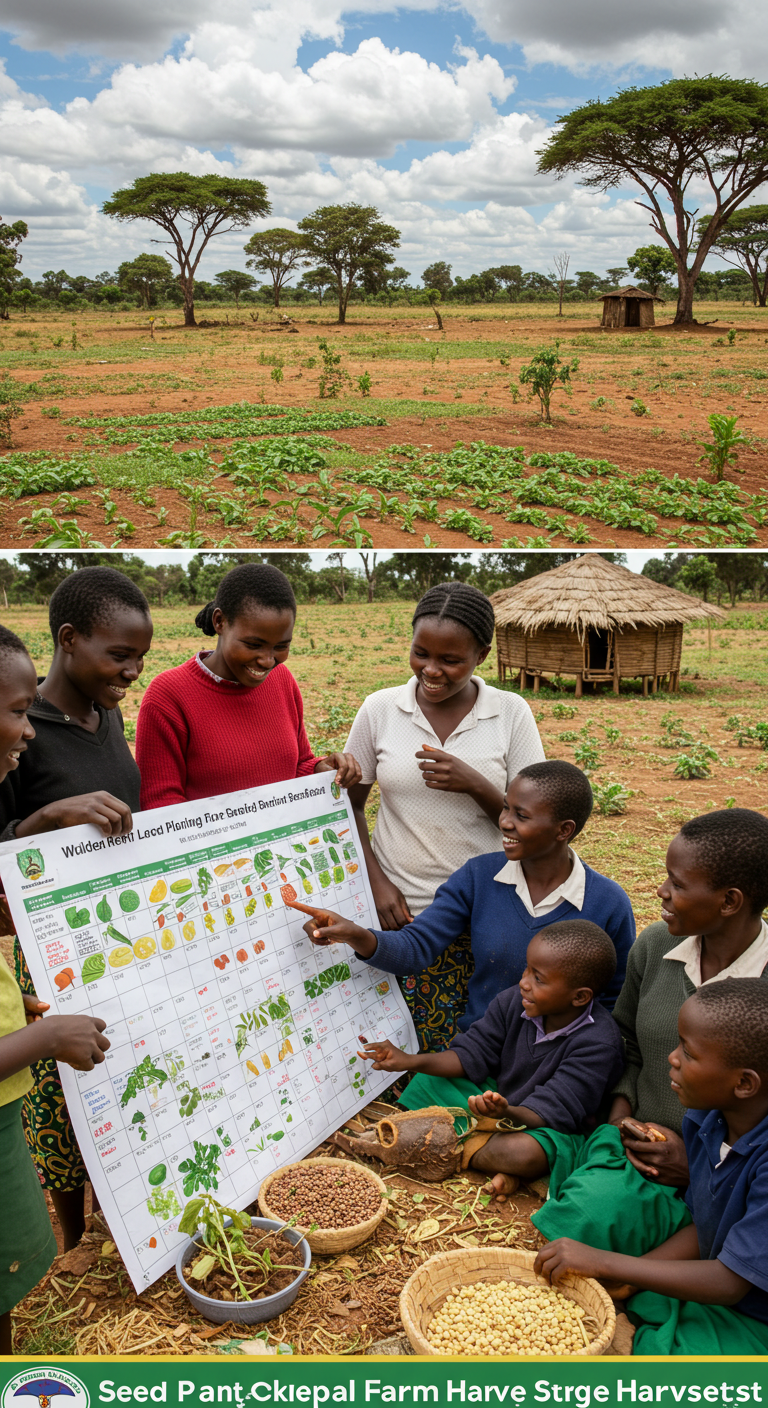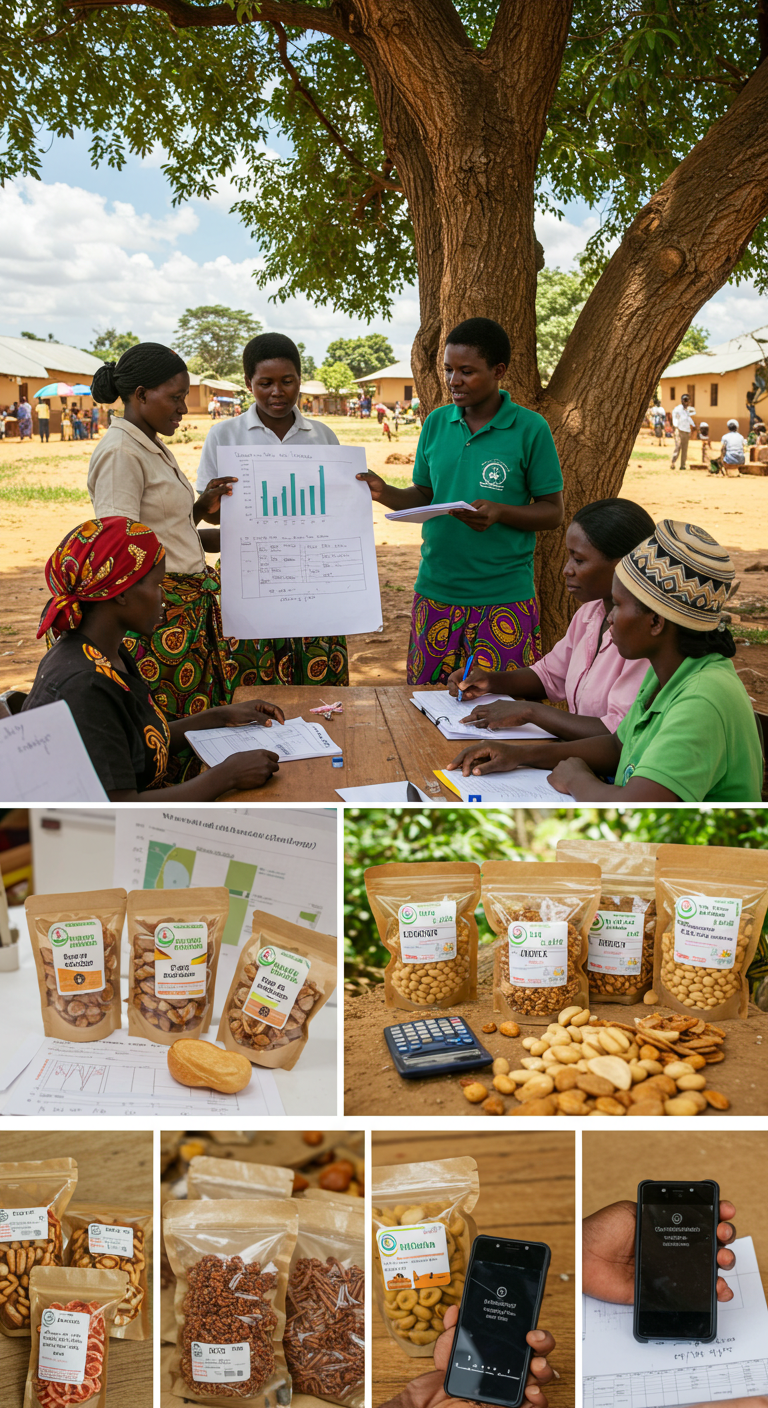Food Forest Project

#
Organic Farming Techniques
Learners are introduced to sustainable farming practices that avoid the use of chemical fertilizers and pesticides. This includes:
Use of compost and green manure
Intercropping for pest resistance
Soil conservation techniques like mulching and cover crops
Crop rotation to maintain soil fertility
Goal: Promote healthy food, environmental conservation, and soil regeneration.

#
Composting & Natural Pest Control
Training covers how to:
Create compost from kitchen waste, leaves, and crop residue
Develop natural fertilizers using manure and decomposed plant matter
Use garlic spray, neem, and ash for pest deterrence
Encourage pest predators like birds and beneficial insects
Goal: Empower communities to reduce costs and promote ecological balance.

#
Seasonal Planting & Harvesting
Farmers and learners are taught how to:
Plan farming cycles around rainy and dry seasons
Use seed calendars for vegetables, grains, and fruits
Time planting for school feeding schedules
Practice post-harvest handling and storage
Goal: Maximize yields and reduce waste through planning.

#
Basic Agribusiness Education
This section introduces simple business principles for small-scale farmers:
Estimating yield and costs
Record-keeping (sales, inputs, profits)
Market linkages and value addition
Understanding demand (e.g. for school meals)
Goal: Transition from subsistence to sustainable farming enterprises.
